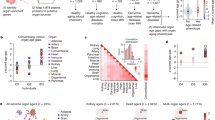Abstract
Undernutrition as well as low levels of vitamin B12 and folic acid are common problems among older adults. However, recommended routine nutritional status assessment tools may result in inadequate vitamin serum levels to go unnoticed. Therefore, the aim of this study is to evaluate the inadequacy of serum levels of vitamin B12 and folic acid within Mini Nutritional Assessment (MNA) classification categories among older adults. A cross-sectional study was conducted with 97 older adults residing in care homes in Portugal. Undernutrition was identified through the MNA, and serum levels of vitamin B12 and folic acid were measured using chemiluminescence. Cognitive function, depressive symptoms and functional characteristics were also assessed using the Abbreviated Mental Test Score, the Epidemiologic Studies Depression Scale and the Barthel Index, respectively. The mean age of older adults was 82.2 (6.3) years; 3.1% were undernourished and 26.8% were at undernutrition risk. In the MNA normal nutritional status group, 11.8% presented vitamin B12 deficiency (<200 pg/ml), 32.4% had low serum levels (200–400 pg/ml) and 4.4% had folic acid deficiency (<3 ng/ml). A high proportion of older adults with low serum levels of vitamin B12 presenting normal nutritional status by MNA was identified. This finding emphasizes the need to evaluate serum vitamin B12 levels, independently of the MNA results.
This is a preview of subscription content, access via your institution
Access options
Subscribe to this journal
Receive 12 print issues and online access
$259.00 per year
only $21.58 per issue
Buy this article
- Purchase on Springer Link
- Instant access to full article PDF
Prices may be subject to local taxes which are calculated during checkout
Similar content being viewed by others
References
Kaiser MJ, Bauer JM, Ramsch C, Uter W, Guigoz Y, Cederholm T et al. Frequency of malnutrition in older adults: a multinational perspective using the Mini Nutritional Assessment. J Am Geriatr Soc 2010; 58: 1734–1738.
Robinson DJ, OLuanaigh C, Tehee E, OConnell H, Hamilton F, Chin AV et al. Associations between holotranscobalamin, vitamin B12, homocysteine and depressive symptoms in community-dwelling elders. Int J Geriatr Psychiatry 2011; 26: 307–313.
van Bokhorst-de van der Schueren MAE, Lonterman-Monasch S, de Vries OJ, Danner SA, Kramer MHH, Muller M . Prevalence and determinants for malnutrition in geriatric outpatients. Clin Nutr 2013; 32: 1007–1011.
Guigoz Y, Vellas B, Garry PJ . Mini nutritional assessment: a pratical assessment tool for grading the nutritional state of elderly patients. Facts Res Gerontol 1994; 2: 15–59.
Lee RD, Nieman DC . Nutritional assessment of hospitalized patients. In ND Lee RD (ed). Nutritional Assessment. Mosby: St Louis, MO, USA, 1995; 289–332.
Chumlea WC, Roche AF, Steinbaugh ML . Estimating stature from knee height for persons 60 to 90 years of age. J Am Geriatr Soc 1985; 33: 116–120.
Soysal P, Isik AT, Uğur A, Kazancioglu R, Ergun F, Babacan Yildiz G . Vitamin B12 and folic acid levels are not related to lenght of stay in elderly inpatients. Nutrition 2013; 29: 757–759.
Aparicio-Ugarriza R, Palacios G, Alder M, González-Gross M . A review of the cut-off points for the diagnosis of vitamin B12 deficiency in the general population. Clin Chem Lab Med 2015; 53: 1149–1159.
Agarwalla R, Saikia AM, Baruah R . Assessment of the nutritional sataus of the elderly and its correlates. J Family Community Med 2015; 22: 39–43.
Akin S, Safak ED, Coban SA, Mucuk S, Kiris Y, Ozturk A et al. Nutritional status and related risk factors which may lead to functional decline in community-dwelling Turkish elderly. Eur Geriatr Med 2014; 5: 294–297.
Acknowledgements
We acknowledge iBeSa (Instituto de Bebidas e Saúde) for the financial support for serum vitamin B12 and folic acid evaluation. This sponsor had no involvement in the study design, in the collection, analysis or interpretation of data, in the writing of the manuscript and in the decision to submit the manuscript for publication.
Author information
Authors and Affiliations
Corresponding author
Ethics declarations
Competing interests
The authors declare no conflict of interest.
Rights and permissions
About this article
Cite this article
Araújo, D., Noronha, M., Cunha, N. et al. Low serum levels of vitamin B12 in older adults with normal nutritional status by mini nutritional assessment. Eur J Clin Nutr 70, 859–862 (2016). https://doi.org/10.1038/ejcn.2016.33
Received:
Revised:
Accepted:
Published:
Issue Date:
DOI: https://doi.org/10.1038/ejcn.2016.33



